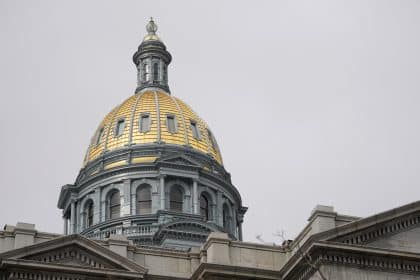Despite Pandemic, Kansas Sees Windfall in Tax Collections

TOPEKA, Kan. – As Congress continues to wrestle with how much it will give to states and cities in the next coronavirus relief package, the state of Kansas says it has seen a dramatic increase in its tax collections, partly due to its decision to demand online retailers make sales tax payments on goods sold to residents.
Kansas Gov. Laura Kelly announced Tuesday that the state’s total tax collections for the first month of its fiscal year were $980.8 million. That was $484.6 million more than in July last year, and just $4.6 million less than had been estimated.
Despite the huge jump, Kelly said state lawmakers “must continue to make fiscally sound decisions to minimize the economic impact of the COVID-19 pandemic moving forward.”
The state collected $619.6 million in individual income taxes for the month; an increase of $395.3 million, or 176.3%, compared to July of FY 2020.
However, these collections were $30.4 million, or 4.7%, less than the estimate for the month.
Corporate income tax collections were $69.8 million; $5.2 million, or 6.9%, less than estimated but an increase of $54.6 million compared to July of FY 2020.
Retail sales tax and compensating use tax collections performed better than both the monthly estimate and in their comparison to July of last fiscal year.
Retail sales tax collections were $218.6 million; $16.6 million, or 8.2%, more than the estimate. That is a $14 million, or 6.9%, growth compared to July of FY 2020. Compensating use tax collections were 39.8%, or $14.3 million, more than estimated, with $50.3 million collected.
That is an increase of $11.3 million, or 29.1%, compared to the same month of FY 2020.
“The state has seen consistent growth in compensating use tax collections as approximately 4,000 out-of-state online retailers have registered with the state under Kansas Department of Revenue Notice 19-04,” Secretary Mark Burghart said. “In addition, changing consumer purchasing patterns, which focus on online purchases during the COVID-19 pandemic, account for some of the increased use tax receipts.”
Kansas’s sales tax collection obligation for online sellers has been marked by controversy from the start.
Twice in 2019, the legislature tried to pass an online sales tax provision that would have safeguarded small sellers, and both times the legislation was vetoed by Gov. Kelly.
Then, on Aug. 1, 2019, the Kansas Department of Revenue published Kansas Department of Revenue Notice 19-04, notifying retailers of sales tax requirements for doing business in Kansas beginning last October.
In based its authority to do so on a 2003 state law that defines a “retailer doing business in this state” to include “any retailer [that] has any other contact with [Kansas] that would allow [Kansas] to require the retailer to collect and remit tax under the provisions of the constitution and laws of the United States.”
Unlike other states that adopted economic protections for remote retailers, the Kansas law does not include a “small seller threshold.” The obligation to collect and remit tax applies to all remote sellers.
In late September 2019, Kansas Attorney General Derek Schmidt issued an opinion concluding the notice’s requirement for all remote sellers to register and begin collecting and remitting was unlawful.
While noting that the 2003 law may be applied on a case-by-case basis, Schmidt said that categorically requiring all out-of-state retailers to collect and remit sales and use tax would likely impose an undue burden on interstate commerce and itself be unconstitutional.
Despite calls from Schmidt and members of the legislature that the law be rescinded, Kelly refused to back down.
“This is about protecting our friends and neighbors doing business on Main Street and throughout our local communities across Kansas,” she said in a written statement. “They are working hard, playing by the rules and deserve to be on a level playing field with out-of-state retailers. The Department of Revenue’s notice simply reaffirms this tax fairness.”
Department of Revenue Secretary Burghart also rejected Schmidt’s conclusions, saying that Kansas retailers had been clamoring for such a law for nearly 30 years, and that in light of the 2003 law, the department’s notice did not reflect a change of policy, but merely “restated long-established statutory provisions.”
“The Department of Revenue cannot select which laws it enforces. Kansas statutes are presumed to be constitutional, and unless deemed otherwise by a court of competent jurisdiction, the department is obligated to enforce the statutes enacted by the Legislature,” Burghart said.






















